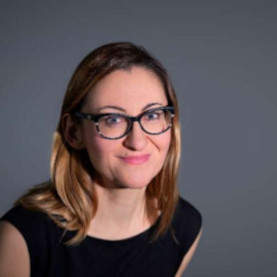Speech-to-Song Illusion Project: One of my longest running projects (partly funded by the British Academy, UK) is dedicated to the understanding of the so-called 'speech-to-song illusion', and seeks to illuminate how the link between language and music is mediated by cognitive abilities and previous experience of the listener and moderated by the acoustic and linguistic structure of speech. A paper arising from this long-term collaboration with Prof Simone Falk and Prof Simone Dalla Bella 'When Speech Sounds Like Music' was featured in the September 2014 issue of APA PeePs (Particularly Exciting Experiments in Psychology), a collaboration between six of APA’s experimental psychology journals. I have been studying this auditory effect since 2009, and it still presents me with many puzzles.
One of my most recent projects studies the perception of political charisma in low-status speakers. It is affiliated with, and funded by, The Cluster of Inequality, University of Konstanz. In the current era of “post-truth” and “post-fact” politics, understanding what factors influence impressions of politicians’ charisma, trustworthiness, persuasiveness and competence is more relevant and timely than ever before. This project addresses how willingly attributes of political charisma are awarded to speakers who can be considered minorities in the context of white male dominated political arena of the UK. It will utilise innovative methods drawing on expertise of phonetics, sociology and computing science. The results will inform the understanding of how individual receivers of a political message might contribute to, and help to maintain, inequalities in the distribution of political influence that affects participation and policies. This project involves collaborative work with JProf Diego Frassinelli, Prof Susumu Shikano, Dr Duangkamol Srismith, Prof Stephan Streuber and Dr Judit Vari.
One of my ongoing projects (funded by the Leverhulme Trust, UK, JSPS and GBSF) studies the controversial topic of language rhythm from a cross-linguistic, typological perspective. The project’s methodological approach capitalises on the advances made by music psychology and movement sciences in the understanding of rhythm through studying perception-action coupling in sensorimotor synchronisation tasks. The results of this project contribute to a better understanding of the mechanisms underlying rhythmic experience in language and a more elaborate linguistic concept of rhythm. This project is based on collaborative work with Dr Chia-Yuan Lin, Prof Simone Falk and Prof Simone Dalla Bella.
Like many linguists, I am fascinated with the mystery of language change. During my post-doctoral research at the University of Glasgow, I contributed a prosodically informed approach to a real-time study of sound changes in Glasgow variety of English. As a member of a team from UGhent (Prof Anne Breitbarth, Prof Claudia Crocco, Mr Giuseppe Magistro) and University of Padua (Dr Jacopo Garzonio), I am studying prosodic cues to syntactic reanalysis that leads to a major linguistic change in the system of sentence negation. This project aims to provide unique experimental evidence to the role of prosody in the so-called “Jespersen's cycle”, a phenomenon that has been observed in many languages in which a standard negator has been replaced by an intensifier undergoing a re-interpretation. The Italian particle “mica” is currently in the process of such reanalysis happening in the Northern dialects of Italian. The data collection is in progress, watch this place for the updates. Other projects involving prosody in language change are underway!





